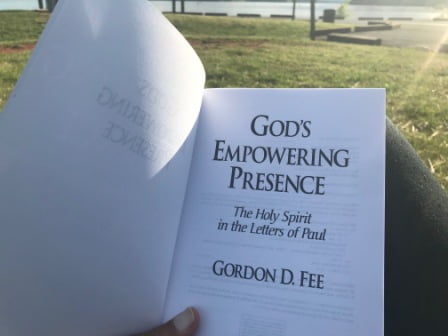(From Dave Black Online. Used by permission.)
8:30 AM This morning I was reading several blog posts that basically said that the pastor is the ultimate authority when it comes to interpreting the Bible. The essays extolled the “teaching office” of the church and asserted that laypeople are essentially to hang on every word their pastor says. I plan on getting to the problem of biblical illiteracy in my book Godworld, but today I want to note my concern with such notions. Actually, I agree that formal teaching in the church is an absolute necessity. I’ve been teaching in local churches since I was 16. (Unusually what I do is called “preaching,” but I prefer the term “teaching” in accordance with Eph. 4:11 and 1 Tim. 3:2.) I also agree that many Christians in America have unfortunately become their own sole authority in interpreting the Bible. But could anything be more contrary to the teaching of the New Testament than to say (or imply) that pastor-teachers are the ultimate authority in interpreting the Bible? One thing we learn from reading the New Testament is how varied the teaching ministry of the early church was. I doubt if there was the pulpit-centricity in these early congregations such as we find today in so many of our churches. Formal teaching undoubtedly existed. But this does not mean that the leaders did all the talking. To say this is not to belittle the ministry of pastor-teachers. I have trained a good number of them during 38 years of teaching Greek. Nor am I pleading for an “anything goes” mentality when it comes to our gatherings as believers. I am simply pleading for such a sensitivity to the Holy Spirit that it should not be impossible for the Holy Spirit to get a message across to the people through any member of the congregation He should inspire to speak. This is no pipe dream on my part. I have seen it happen in many congregations, my own included. I believe that most churches could do a great deal more to encourage this outlook. In this way many in the congregation will be prepared to put into practice the teaching of Heb. 10:24-25. The gathering would move from being a time of passive listening to an opportunity to engage in mutual edification.
And what of 1 John 2:27? Here the apostle John is emphasizing the sufficiency of the Holy Spirit when it comes to knowing spiritual truth.
But the anointing that you have received from the Holy Spirit remains in you, and you do not need for anyone to teach you.
Do we as evangelicals truly believe this statement? It is the Spirit who grants us understanding of the Scripture. It is He who allows us to grow in knowledge and in spiritual stature. It is He who illuminates to our hearts and minds not only the person of Christ but His will for our lives. The Spirit is thus the supreme interpreter of God’s word. Once you understand this, Bible study will become an important part of your life, a discipline that you can hardly afford to neglect. This means that once we come to faith in Christ, we need never be dependent on human teachers to lead us, helpful though they may be. As our “anointing,” the Holy Spirit not only teaches us the truth of God but guides us as we seek to live out that truth in our lives. We have in the Spirit a teacher who is resident within us to show us the mind of the Lord. Little wonder that increasing numbers of Christians today are finding they have a new love for personal Bible study.
Put all this together and you arrive at the conclusion that God has provided multiple teachers in His church: gifted leaders, our fellow Christians, and ultimately the Holy Spirit Himself. I “preach” regularly in churches. But to be honest with you, I would never want anybody to hang on my every word. I would rather point them to the only infallible source of knowledge about God and His will for us, and that is the Bible. It is this Bible that we are to teach one another. We need each other, not least when it comes to understanding and obeying God’s word. I urge you to find a church home that encourages this kind of mutual edification. If there is a strong teaching ministry where you attend (and hopefully there is), make sure the teaching is sound and feedback encouraged. (A monologue need not exclude audience participation.) Make a point too of participating in small group Bible studies. Remember that believers are all on a par with each other: teachers and taught alike are fellow-sinners and fellow-learners. If possible, make room for more formal courses in the Bible. If a local church is to make a significant impact in its community, it must become a learning center, a place where truth is valued and taught. (In my book The Jesus Paradigm, I devote an entire appendix to the theme of “Returning Biblical Education to the Local Church.”) My prayer is that God will use His word to prepare all of us to fulfill the vital role He has for us in the kingdom movement He’s inspiring in our day.





